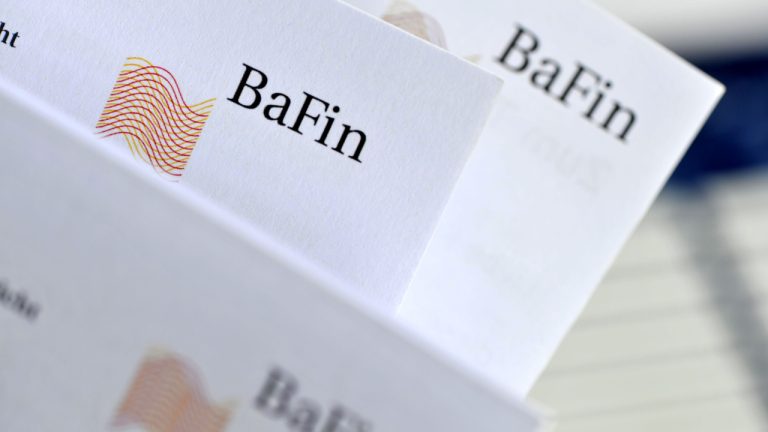 Compass Mining has announced a partnership with Mindshift, a licensed digital asset service provider in South Korea, to extend bitcoin mining services to the region. The collaboration aims to address challenges like high electricity costs while making bitcoin mining more accessible to South Korean residents. Compass Mining Collaborates With Mindshift The partnership between Compass Mining, […]
Compass Mining has announced a partnership with Mindshift, a licensed digital asset service provider in South Korea, to extend bitcoin mining services to the region. The collaboration aims to address challenges like high electricity costs while making bitcoin mining more accessible to South Korean residents. Compass Mining Collaborates With Mindshift The partnership between Compass Mining, […]

Concerns were raised after a Bloomberg article reported Kraken was “actively reviewing” which tokens it could continue to list under the European Union’s upcoming MiCA framework.
Cryptocurrency exchange Kraken has “no plans” to delist Tether (USDT) in Europe at the moment despite a recent report claiming the firm was “actively reviewing” the decision to remain legally compliant.
“[Kraken] continues to list USDT in Europe and we have no plans to delist at this time,” stated Mark Greenberg, Kraken’s global head of asset growth and management in a May 18 X post.
The firm will continue to follow all legal requirements — even those that it disagrees with — Greenberg iterated. “But the rules are not finalized yet and we continue to do everything we can to continue to offer all relevant stablecoins to our European customers.”

De Nederlandsche Bank cannot share details of Binance’s registration failings in the country due to the confidentiality requirements of its supervisory laws.
The details behind Binance’s failed efforts to register for a virtual asset service provider (VASP) license in the Netherlands remain unclear due to the confidentiality requirements of the Dutch central bank’s supervisory laws.
On June 16, Binance announced it would terminate its services in the Netherlands with immediate effect, having failed to get the all-clear from De Nederlandse Bank (DNB). From July 17, Dutch customers will only be able to withdraw assets from the platform, while trading and deposits were stopped on the date of the announcement.
Binance claimed it had undergone a “comprehensive registration application process” to obtain a VASP license in the Netherlands and explored “alternative avenues” to serve Dutch residents in the country. The exchange indicated that it would continue its effort to obtain authorization to provide its services and products in the country.
Cointelegraph reached out to Tobias Oudejans, DNB press officer for supervision, fintech, cryptocurrencies, resolution and payment systems, to ascertain the final details of Binance’s failed registration efforts.
Oudejans said the central bank could not share more details about Binance’s registration due to legal requirements of supervisory laws:
“Because of confidentiality as demanded by our supervisory laws, we cannot elaborate on anything concerning our supervision on individual institutions or the possible licensing trajectories they may be in.”
Oudejans added that the DNB wanted to stress that its perceived silence over this specific supervisory outcome and similar issues ‘might wrongly be attributed to an unwillingness to comment,’ but was necessitated by Dutch laws.
Binance would have joined a list of 35 VASP that have completed registration with the DNB. This includes the likes of Coinbase Custody International Limited, Coinbase Europe Limited, eToro (Europe) Limited, BitPay and Bitstamp.
Related: EU’s new crypto law: How MiCA can make Europe a digital asset hub
Oudejans said VASP registration requirements in the Netherlands are in line with the similar requirements for other types of financial institutions under the DNB’s supervision. These are based on the Netherlands Anti-Money Laundering and Anti-Terrorist Financing Act, locally known as the Wet ter voorkoming van witwassen en financieren van terrorisme (WWFT).
The implementation of the European Union’s recently published Markets in Crypto-Assets regulation (MiCA) could provide Binance an alternative avenue to operate in the Netherlands come 2024. As Oudejans explained, the global exchange could gain access to the Dutch market if it has met the necessary requirements in other EU member states:
“It is not yet clear in what way MiCA will be implemented in the Netherlands, but indeed it looks like it will be a different law than the WWFT and possibly on a European level there may be access to the Dutch market for registered entities from other EU-countries.”
Binance has already indicated that it is ramping up efforts to be fully compliant with the new EU rules set out in MiCAR.
Binance was handed a $3.6 million (3.3 mln euro) by the DNB in July 2022 for operating without clearance in the Netherlands.
Meanwhile Coinbase obtained a green light from the DNB in September 2022 as it began to explore expansion away from the United States and into Europe. The U.S. exchange is embroiled in a high-profile legal battle with the U.S. Securities and Exchange Commission over allegations that it has been operating as an unregistered securities exchange, broker and clearing agency.
Magazine: Opinion: GOP crypto maxis almost as bad as Dems’ ‘anti-crypto army’

The crypto business guidelines were reportedly revealed by the chief executive of Hong Kong’s Securities Futures Commission, Julia Leung.
The Hong Kong Securities Futures Commission (SFC) is reportedly set to release cryptocurrency exchange licensing guidelines next month.
The plans were reported by Bloomberg on April 27, which cited comments from the SFC’s chief executive Julia Leung on Thursday.
The incoming guidelines will provide support to crypto trading platforms that will be able to offer trading services to retail investors on June 1.
Leung said the consultation process on the licensing regime received over 150 responses from interested parties, according to Bloomberg.
Anti-Money Laundering (AML) and Know Your Client (KYC) regulatory requirements were some of the key considerations made in the Feb. 20 report that Leung was presumably referring to.
Julia Leung, CEO, the Securities and Futures Commission Hong Kong speech at Bloomberg #virtualasset #esg #wealthconnect #ifc pic.twitter.com/M1eCHLP1VZ
— Finance Mandarin 漢通金融學院 (@FinanceMandarin) April 27, 2023
While confirmation awaits for most prospective Virtual Asset Service Provider (VASP) licensees, some trading platforms have already begun offering crypto-related services to investors under the SFC’s supervision.
OSL and Hashkey Group are amongst the few trading platforms to have already received licenses from the SFC, according to Reuters.
Related: Hong Kong’s crypto ambition gets subtle nod from Beijing: Report
Despite Hong Kong’s ambition to become the next crypto hub, not every trading platform has chosen to stick around for the long haul.
Bitget — a crypto exchange with $1.4 trillion assets in reserve — announced on April 24 that it will cease offering services to its Hong Kong customers when the Hong Kong VASP regime takes effect on June 1.
Magazine: Asia Express: 3AC cooks up a storm, Bitcoin miner surges 360%, Bruce Lee NFTs dive
 Crypto exchange and custody platform Bitpanda announced on Nov. 22 that it had received a crypto trading license from Germany’s Federal Financial Supervisory Authority. According to Bitpanda, securing a license means it has become the “first European retail investment platform to meet BAFIN’s strict regulatory requirements.” New License Strengthens Bitpanda’s Position Austrian crypto exchange platform […]
Crypto exchange and custody platform Bitpanda announced on Nov. 22 that it had received a crypto trading license from Germany’s Federal Financial Supervisory Authority. According to Bitpanda, securing a license means it has become the “first European retail investment platform to meet BAFIN’s strict regulatory requirements.” New License Strengthens Bitpanda’s Position Austrian crypto exchange platform […] The Seychelles-based crypto trading app, OKX, recently became the latest virtual assets service provider to be granted a provisional licence to provide its services in the United Arab Emirates (UAE). The provisional licence allows OKX to extend certain exchange products and services to pre-qualified investors and financial service providers. OKX Allowed to Extend Certain Exchange […]
The Seychelles-based crypto trading app, OKX, recently became the latest virtual assets service provider to be granted a provisional licence to provide its services in the United Arab Emirates (UAE). The provisional licence allows OKX to extend certain exchange products and services to pre-qualified investors and financial service providers. OKX Allowed to Extend Certain Exchange […] The United Arab Emirates (UAE) is getting closer to issuing a regulatory and supervisory framework that will govern the country’s virtual asset industry, the Securities and Commodities Authority (SCA) has said. FATF Recommendations A UAE securities regulator, the SCA has said it is getting closer to “issuing the regulatory and supervisory framework related to virtual […]
The United Arab Emirates (UAE) is getting closer to issuing a regulatory and supervisory framework that will govern the country’s virtual asset industry, the Securities and Commodities Authority (SCA) has said. FATF Recommendations A UAE securities regulator, the SCA has said it is getting closer to “issuing the regulatory and supervisory framework related to virtual […] Starting in the year 2022, donated or inherited virtual assets will be assessed and taxed accordingly, South Korea’s National Tax Service has said. Dunamu, Bithumb Korea, Korbit, and Coinone are the new virtual asset service providers (VASPs) tasked with evaluating digital assets for such tax purposes. Virtual Asset Service Providers Tasked With Evaluating Crypto Gifts […]
Starting in the year 2022, donated or inherited virtual assets will be assessed and taxed accordingly, South Korea’s National Tax Service has said. Dunamu, Bithumb Korea, Korbit, and Coinone are the new virtual asset service providers (VASPs) tasked with evaluating digital assets for such tax purposes. Virtual Asset Service Providers Tasked With Evaluating Crypto Gifts […]